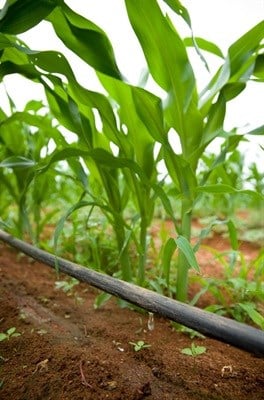Marketing & Media trends
Industry trends
BizTrends Sponsors
Trending





 Era of first-party data dawns as the data cookie crumblesLindsey Schutters
Era of first-party data dawns as the data cookie crumblesLindsey Schutters
#BizTrends2017: Why more than ever, sustainability is good business

As a result, there is no longer a fundamental contradiction between concern for the environment or social responsibility and business objectives.
Sustainability is good business
Increasingly, empirical evidence indicates that the concept of sustainability is now unquestionably an issue of good business.
Organisations can no longer afford to approach sustainability as a 'nice to have' or as a function separated from the 'real' business. Instead, it is those companies that proactively make sustainability core to business strategy and practice, that will drive innovation and inspire enthusiasm and loyalty from a range of stakeholders, which include employees, customers, suppliers, communities, governments and investors.
The retail sector is no different. Increased scrutiny continues to be placed on the industry, both from a direct and supply chain impact perspective. Legitimate issues such as traceability, ethical and responsible sourcing of commodities are material risks for the sector. As such, mitigating these risks requires a business model based on long-term supplier relationships and a responsibility to influence change along a given supply chain.
However, it is also important to acknowledge that what constitutes ‘good business’ is a moving target, and as such we must continuously push ourselves to achieve more ambitious targets and goals every year.
Global alignment post-ratification of Paris Agreement
In October, the South African government indicated that it would join 61 other United Nations member states, and agree to the ratification of the Paris Agreement on climate change.
The Paris Agreement, which required a minimum of 55 member state signatories to be enforced, is universally regarded as a seminal point in the development of a global alignment to a new international climate change commitment around the world. The Agreement is a comprehensive framework that will guide international efforts to limit greenhouse gas emissions and to meet all the associated challenges posed by climate change. It also signals a change in pace towards low carbon development from 2020 onwards. This will be achieved through a series of commitments from countries in the implementation of ambitious national plans called ‘Nationally Determined Contributions’.
In preparation to meet its revised commitment to limit greenhouse gas emissions, South Africa continues to significantly invest in renewable energy, energy efficiency, waste management and land restoration initiatives. Our country is also striving to enhance efforts to transition to a lower carbon economy and society, as well as to adapt in the short, medium and long term to the impacts of increasing temperatures, reduced rainfall in many parts of the country and other impacts of climate change.
Therefore, it will be imperative for the business community to support various government efforts in this regard in the future, through its own commitments to climate change mitigation and to keep driving a shift to renewable energy.
Doing more with less; adapting to the growing impact of resource scarcity
The current devastating impact of drought conditions in South Africa continues to put pressure on all sectors in society and challenges all of us to make a concerted effort towards sustainability. The current drought we are experiencing is also indicative of the need to conserve and to ensure we use our resources responsibly.

In 2017, the focus on adaptation will sharpen considerably, particularly in developing countries such as South Africa where people have personal experience of changing weather patterns and the increased frequency of climate-related disasters. Mitigating environmental challenges will include the need to grow renewable energy opportunities, efficiently and responsibly managing water scarcity and quality issues, as well as a host of agricultural concerns including security of land tenure and a declining number of farmers – all of which affect food security and prices, putting pressure on South African consumers.
It is therefore our collective responsibility as corporate citizens to look to reduce resource consumption patterns, both in our respective places of business and along our supply chains, to see where efficiencies can be enhanced.
Quite simply, cutting back on the use of scarce resources, and consistently measuring and monitoring resources correctly has to become a critical part of doing business going forward.





